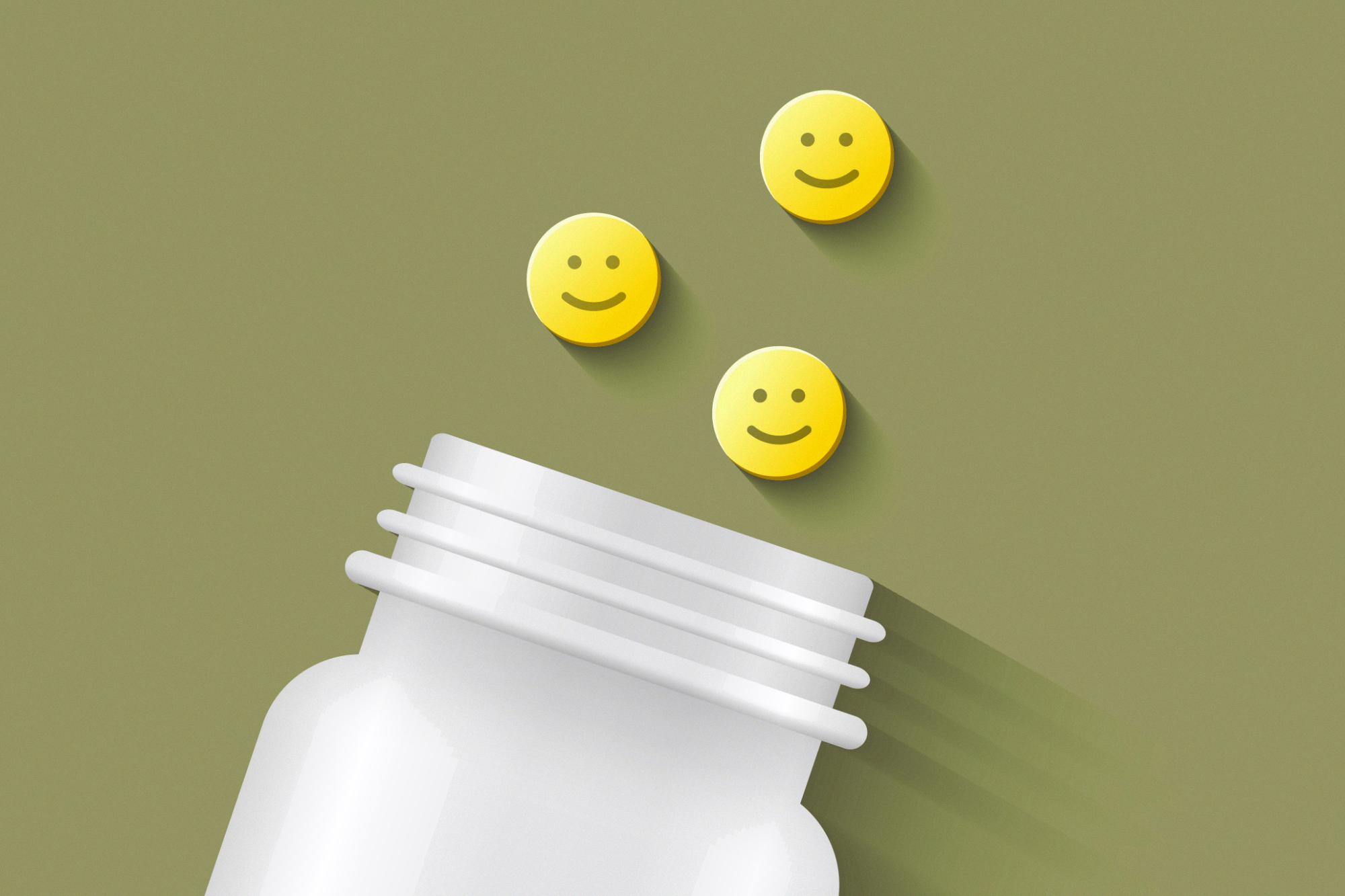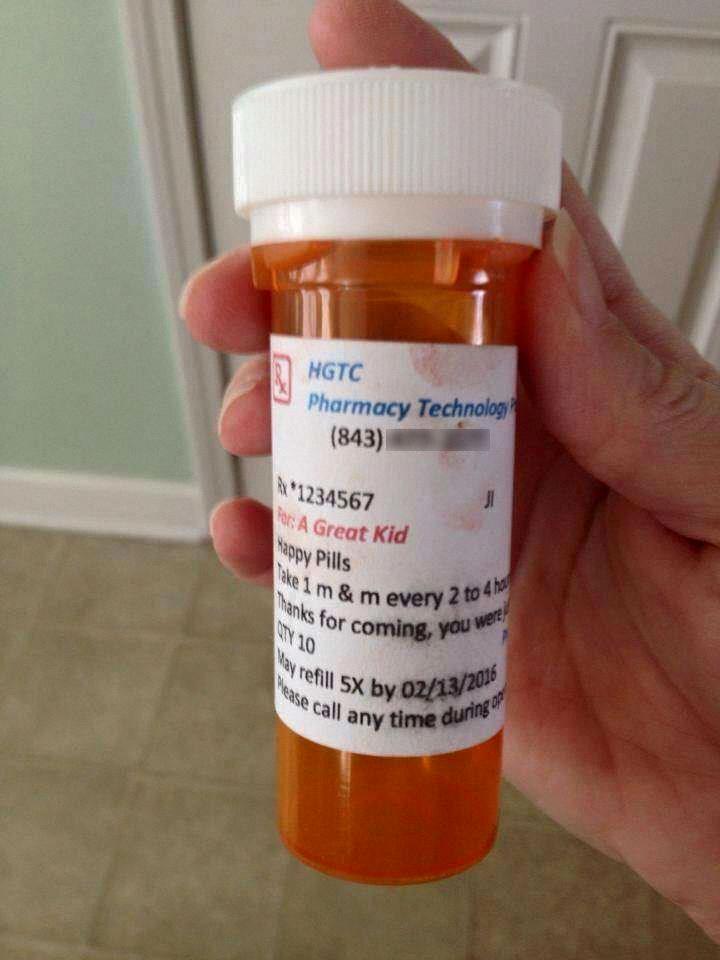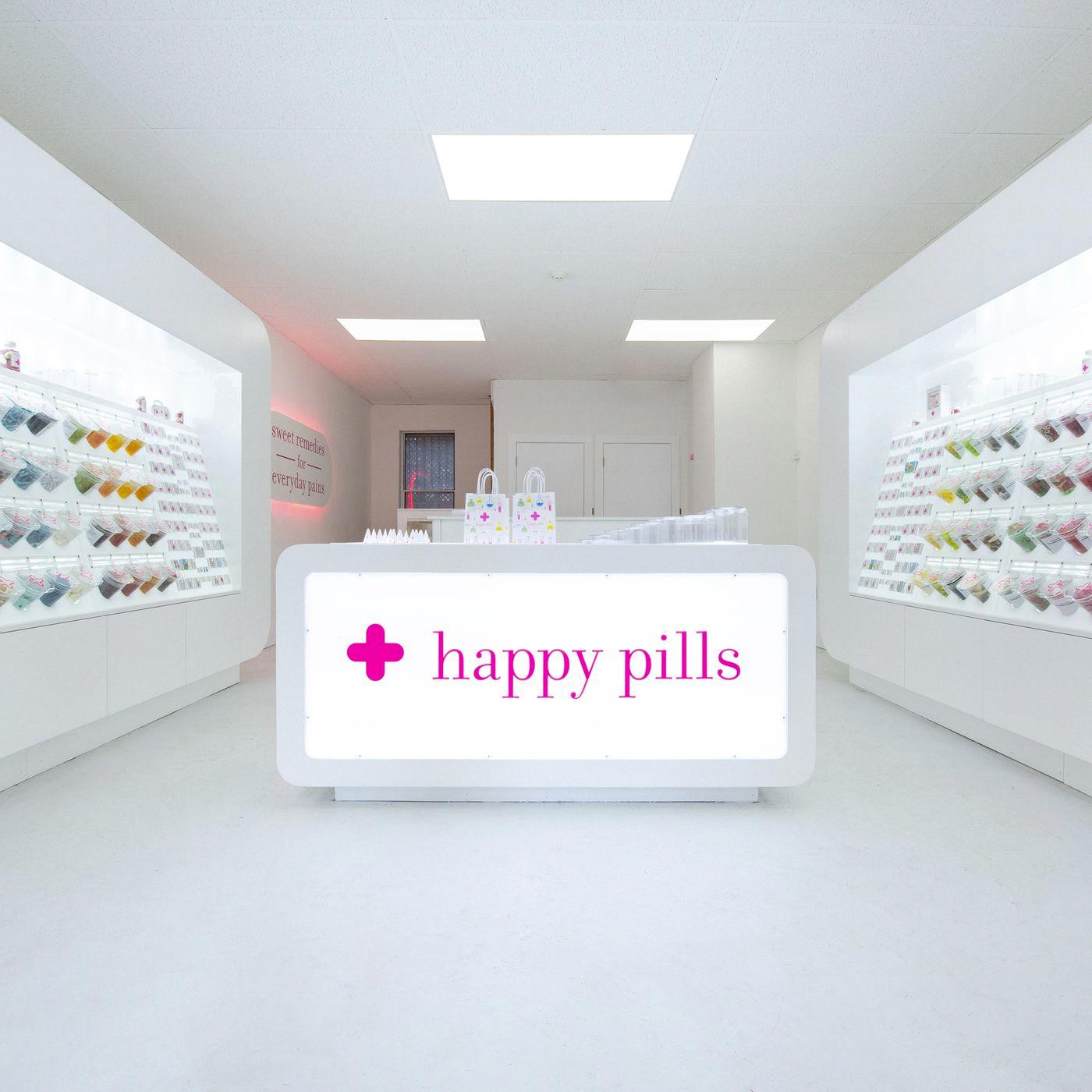Are happy pills real? It’s a question that’s been asked many times by those who are struggling with mental health issues and hoping to find a quick fix. The answer is yes and no. While there is no such thing as a “magic pill” that can instantly make someone happy, there are medications that can help improve your mood, reduce anxiety, and even treat depression.
The most common type of medication used for treating mental health issues are antidepressants. These drugs work by increasing the levels of serotonin in the brain, which is a neurotransmitter responsible for regulating our moods. Antidepressants work best when taken regularly over an extended period of time, although some people may experience relief from symptoms within a few weeks of beginning treatment. Common side effects of antidepressants include nausea, weight gain, insomnia, dry mouth, and sexual problems.
Another type of medication used to treat mental health issues are anti-anxiety drugs or anxiolytics. These drugs work by reducing feelings of anxiety and can be prescribed alone or in combination with other treatments such as psychotherapy or lifestyle changes. They may also be used in cases where antidepressant medications are not effective or tolerated well by the patient. Common side effects of anti-anxiety medications include fatigue, dizziness, and confusion.
It’s important to remember that medications alone cannot cure mental health issues; they should be combined with other treatments such as psychotherapy or lifestyle changes to be effective in treating the underlying cause of the problem. Additionally, it is important to talk to your doctor about any potential risks before taking any kind of medication for mental health issues as all medications come with potential side effects and interactions that could be dangerous if not monitored carefully by your doctor.
In conclusion, while there is no such thing as a “happy pill” that can instantly make someone feel better, there are medications available that can help improve your mood and reduce anxiety levels when taken correctly alongside other treatments such as psychotherapy or lifestyle changes. It is always important to talk to your doctor before taking any kind of medication for mental health issues so that you can understand any potential risks associated with them and ensure they will be safe and effective for you individually.
The Possibility of a ‘Happy Pill’
No, there is no such thing as a “happy pill” that can magically make someone feel happier. However, there are medications that have been approved for the treatment of certain mental health conditions such as depression and anxiety that can help improve symptoms and quality of life. Fluoxetine (Prozac) was the first drug of its kind to be widely prescribed, but there are many other medication options now available, including SSRIs, SNRIs, benzodiazepines, and tricyclic antidepressants. It is important to understand that while these medications can be helpful in treating certain mental health conditions, they do not provide a “quick fix” or guarantee happiness. It is also important to discuss any potential risks associated with taking these medications with your doctor before starting treatment.

Source: opmed.doximity.com
The Effects of Taking Happy Pills
The term ‘happy pills’ is a colloquial term used to refer to antidepressant medications, which are used to treat depression and anxiety. Depending on the medication prescribed, potential effects can vary widely.
Common side effects of antidepressants may include nausea, headaches, dizziness, insomnia, sexual dysfunction and weight gain. In some cases there may also be changes in appetite or digestive problems such as constipation. Other less common side effects may include blurred vision and emotional numbness. In rare cases there have been reports of allergic reactions or suicidal ideation in patients taking certain antidepressants.
It is important to note that the effects of antidepressants vary from person to person and it can take some time for an individual to find the right medication that works best for them. It is important to discuss any potential risks or side effects with your doctor before beginning any antidepressant treatment plan.
The Effects of Recreational Drugs on Mood
There are many drugs that can make you feel happy, although none of them are without risks. One of the most commonly used drugs is marijuana. Marijuana is known to produce a feeling of relaxation and euphoria, often referred to as the “high”. It works by releasing the chemical dopamine into your brain, which gives you a sense of pleasure and well-being.
Alcohol is another drug that can make you feel happy in the short term. Alcohol affects your brain in much the same way as marijuana, releasing dopamine and endorphins which can create a feeling of pleasure and relaxation. However, repeated use of alcohol can cause tolerance, meaning that it takes more alcohol to produce the same effects over time. Additionally, alcohol can lead to addiction and long-term health problems related to heavy drinking.
Other drugs such as ecstasy (MDMA) and magic mushrooms (psilocybin) have also been used for their mood-lifting effects. These drugs can produce intense feelings of joy and well-being, but they also carry significant risks such as hallucinations, paranoia, anxiety, depression and even death in some cases.
It’s important to remember that these drugs should not be taken lightly or without professional guidance or supervision. They all have potential side effects that should be taken into consideration before using them.
Ways to Achieve Happiness
If you’re looking for a way to feel happier, there are several natural and pharmaceutical options available. Some of the most popular natural remedies include 5-HTP, an amino acid that is converted into serotonin and helps boost happiness, emotional well-being, and melatonin levels; Vitamin D3, which can help reduce symptoms of depression and anxiety; L-tyrosine, a naturally occurring amino acid which helps regulate mood; Glutathione, an antioxidant that helps reduce inflammation in the body; Theanine, an amino acid that increases relaxation; Zinc and Copper Orotate to help reduce stress hormones in the body; Methyl Folate + B12 which helps to boost energy levels; and Modafinil (Provigil), which is a prescription medication used to improve alertness and wakefulness. For best results, always consult with your doctor before taking any supplements or medications as each person’s needs will vary.
How Quickly Do Happy Pills Take to Work?
Antidepressants usually take at least three to four weeks to start working and reducing the symptoms of depression. It is important to note that it can take up to six weeks or even longer for some people to experience an improvement in their mood, so it is important to be patient and follow your doctor’s instructions when taking antidepressants.

Source: nbcnews.com
The Effects of Antidepressants on Mood: Euphoria
There are a number of antidepressants that can cause euphoria, although this is not their primary purpose. One such antidepressant is Elavil (amitriptyline), which is a tricyclic antidepressant. This type of medication works by inhibiting the reuptake of serotonin and norepinephrine, causing an increase in the levels of these neurotransmitters in the brain. As a result, some people may experience a sense of happiness or euphoria when taking Elavil. However, it should be noted that this side effect is rare and usually only occurs with higher doses, so it is not recommended to take Elavil specifically for this purpose. Other antidepressants that could potentially cause euphoria include bupropion (Wellbutrin), duloxetine (Cymbalta), milnacipran (Savella), and venlafaxine (Effexor). Again, while these drugs might occasionally produce feelings of euphoria, they should not be taken solely for this purpose due to potential adverse effects.
The Effects of Xanax
Xanax is a medication used to treat anxiety and panic disorders. It is in the class of medications called benzodiazepines, which work by affecting certain neurotransmitters in the brain that control emotions. When taken as prescribed, Xanax can help to reduce feelings of fear, worry, and uneasiness. It also helps to improve concentration and reduce physical symptoms associated with anxiety such as muscle tension and rapid heart rate. Xanax works quickly, usually within 30 minutes, but its effects may last up to 6 hours. It is important to note that Xanax should not be taken on an as-needed basis; it should be taken exactly as prescribed by your doctor.
The Most Popular Drug for Treating Depression
The most popular drug for depression is sertraline hydrochloride, a type of antidepressant known as a selective serotonin reuptake inhibitor (SSRI). This medication works by increasing the levels of serotonin, a chemical naturally produced in the brain that helps regulate mood. It is used to treat major depressive disorder, obsessive-compulsive disorder, panic disorder, post-traumatic stress disorder, and premenstrual dysphoric disorder. In 2021, it was prescribed more than 18 million times. Trazodone hydrochloride is also widely used to treat depression and anxiety and had more than 15 million prescriptions in 2021. Other popular antidepressants include escitalopram, fluoxetine, and citalopram hydrobromide.
The Effects of Hallucinogenic Drugs
Hallucinations are a rare side effect of some psychiatric medications, such as olanzapine (Zyprexa), quetiapine (Seroquel), and haloperidol (Haldol). Other medications which have been reported to cause hallucinations include zolpidem (Ambien), eszopiclone (Lunesta), clonazepam (Klonopin), lorazepam (Ativan), and ropinirole (Requip). It is also possible for some seizure medications to cause hallucinations.
It is important to note that these drugs are not typically prescribed with the intention of inducing hallucinations. If you experience hallucinations while taking any medication, it is advised that you contact your healthcare provider immediately in order to discuss any potential risks or benefits associated with the drug.

Source: boston.eater.com
The Effects of Drugs on Happiness
Drugs make you feel happy because they stimulate the reward pathways in the brain, specifically the mesolimbic dopamine system. This is a network of neurons that connect the midbrain to areas of the brain associated with pleasure and reward. When drugs are introduced into this system, they cause an increase in dopamine levels, which triggers feelings of euphoria and pleasure. Over time, this pathway becomes conditioned to expect a reward when drugs are present, leading to increased cravings and drug use.
The Effects of Drugs on Anger
Alcohol, anabolic steroids, cocaine, amphetamines, sedatives, opiates, and hallucinogens can all cause aggression. Alcohol is a depressant that slows down the central nervous system. It can lead to increased aggression due to changes in mood or judgment. Anabolic steroids are synthetic hormones that can increase levels of aggression. Cocaine is a stimulant that affects the brain’s reward system and can produce feelings of euphoria as well as heightened aggression. Amphetamines are stimulants that speed up the central nervous system and can cause feelings of irritability and hostility. Sedatives are drugs used to reduce anxiety but can also lead to increased agitation or aggressiveness when taken in large doses. Opiates like heroin produce a sense of pleasure but may also cause feelings of anger when users experience withdrawal symptoms. Hallucinogens like LSD can lead to unpredictable effects such as paranoia, fear, and aggression in some users.
The Effects of Taking the Purple Pill Drug
The Purple Pill drug is a prescription medication known as Esomeprazole (Nexium). It is a type of medication known as a Proton Pump Inhibitor, which helps reduce the amount of acid produced in the stomach. Esomeprazole (Nexium) has become one of the most popular drugs for treating GERD or acid reflux due to its potency and effectiveness. It is also one of the most expensive Proton Pump Inhibitors available, so it is important to discuss this option with your doctor before making a decision. The drug works by blocking certain pumps in the stomach that produce acid, thus reducing acid production and symptoms associated with GERD or acid reflux.
What Type of Drug is Represented by a Blue Pill?
The blue pills in question are illegally sold as the prescription drug oxycodone, but may actually contain traces of fentanyl, a dangerous synthetic opioid. Fentanyl is a powerful painkiller much stronger than morphine, and can be deadly even in small doses. It is a Schedule II controlled substance, meaning it has a high potential for abuse and addiction. Ingesting fentanyl can cause respiratory depression, coma and even death.
The Use of Dopamine Pills
Dopamine agonists are prescription medications that help to increase levels of dopamine in the brain. These medications can be taken orally, by injection, or through a pump placed under the skin. It is important to speak with your doctor before taking any dopamine agonists as they can potentially have serious side effects. Your doctor will decide if they are appropriate for you and provide instructions on how to take them safely and effectively.
Conclusion
It is clear that “happy pills” are real and have been used for many years as a form of treatment for depression, anxiety, and other mental health issues. However, these medications should be used with caution as serious side effects can occur such as emotional numbness, sexual problems, blurred vision, constipation and weight gain. It is also important to note that some of the most commonly used “happy pills” such as marijuana, alcohol, magic mushrooms, Ecstacy and heroin can result in a crash due to the high levels of dopamine produced in the brain. Ultimately, it is essential to consult a medical professional before using any kind of medication as each individual will have different needs and reactions to various types of drugs.
